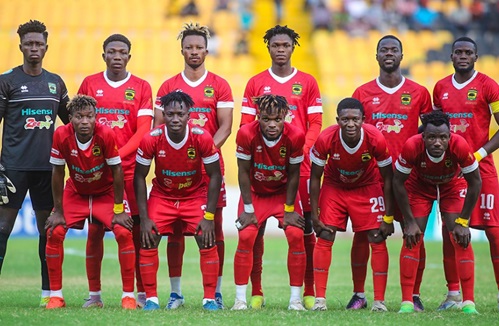Another election cycle is with us and political parties are on the road with the preparatory processes for the contest. The topmost of such is the election of presidential candidates.
We know that candidate selection is largely an exclusive intra-party activity, yet the outcome has implications for the entire body politic. As such, if the open endorsement of presidential aspirants has the potential to negate the gains incrementally consolidated, it is worth highlighting.
Open endorsement of candidates by party executives or Members of Parliament (MPs) in their individual capacities may not necessarily constitute a sin but the sins of such endorsements done en bloc to our democracy are legion. In the case of the two leading political parties, emerging signs of endorsements are for Vice-President Dr Mahamudu Bawumia in the case of the New Patriotic Party (NPP), and former President John Dramani Mahama in the case of the National Democratic Congress (NDC).
Broader participation
Despite the privileged position these individuals have held and the reality that marketing them may be less difficult, which may not mean they are the favourites of the electorate, openly endorsing them by party functionaries can create the perception of bias and partiality. Also, such endorsements can create division within the party if other qualified candidates feel they have not been given an equal opportunity to compete.
Additionally, if the party’s endorsement is seen as an attempt to sway the election, it could undermine the legitimacy of the entire selection process. The implication may be dire for the electoral fortunes of the party, because protest votes may set in, in the form of voter apathy or voting against one’s party’s candidate.
If endorsing such candidates is based on their financial strength, it could mean that there is less inclusiveness and broader participation in the political process. It also sends the wrong signal that poorer and less politically connected individuals are effectively shut out of the political process, leading to a less inclusive participatory system.
This does not help nurture future leaders, which is a major function of political parties. Besides, it creates the impression that the end justifies the means, hence morality in politics is subordinated to cruelty in making money.
Additionally, the literature on electoral politics has established a link between internal party democracy, party unity and electoral outcome. The implications of party executives/MPs openly endorsing one candidate over others lead to deep cracks in political parties. This is because a less transparent process implies that the will of the party membership is under-prioritised. Obviously, this leads to a sense of alienation and demotivation among members to participate in the party’s campaign activities.
Consequence
In a regime where political parties play a critical role in the direction of a government, there is nexus between such open endorsements and how governance is organised at the state level.
Firstly, it can lead to a lack of cohesion within the political party, as the preferences of the rank-and-file may be ignored in favour of the president’s candidate for ministerial and other appointments. One major effect of this is the possible lack of accountability on the party of the President’s ‘untouchable’ appointee.
Secondly, it creates and deepens the regime of favouritism and cronyism, as a signal is sent to the masses that choices made by the President are skewed in favour of those who endorsed him at the candidate selection stage. This breeds mistrust and disaffection among the ruled.
Third, it can lead to a lack of genuine choice of qualified persons for positions that are meant to strengthen institutions, as the executive’s choice may be the only viable option for the country. This can undermine enthusiasm for the political process, as citizens may feel that their opinions do not matter.
Also, if the perceived motives behind such endorsements at the intra-party level become the reality, the net effect could be patronage since choices for appointments would be a function of loyalty to the candidate/president and to a large extent the party and not to their merits or qualifications.
Delegates responsibility
In effect, while delegates have the right to endorse whomever they believe will win the election, they have a responsibility to do so while bearing in mind that beyond the election, we collectively have a democracy to consolidate.
Therefore, anything that creates the impression of an unfair advantage in the candidate selection process can undermine the democratic gains within the party and the wider state. If the motivation for candidate endorsement is to nurture patronage, deliberately weaken intra-party democracy, or demonstrate loyalty, none may be served in the interest of Ghana.
Let us remember that a divided party that forms a government or opposition cannot function smoothly, in the quest to make life better for Ghanaians.
Source: Graphiconline






